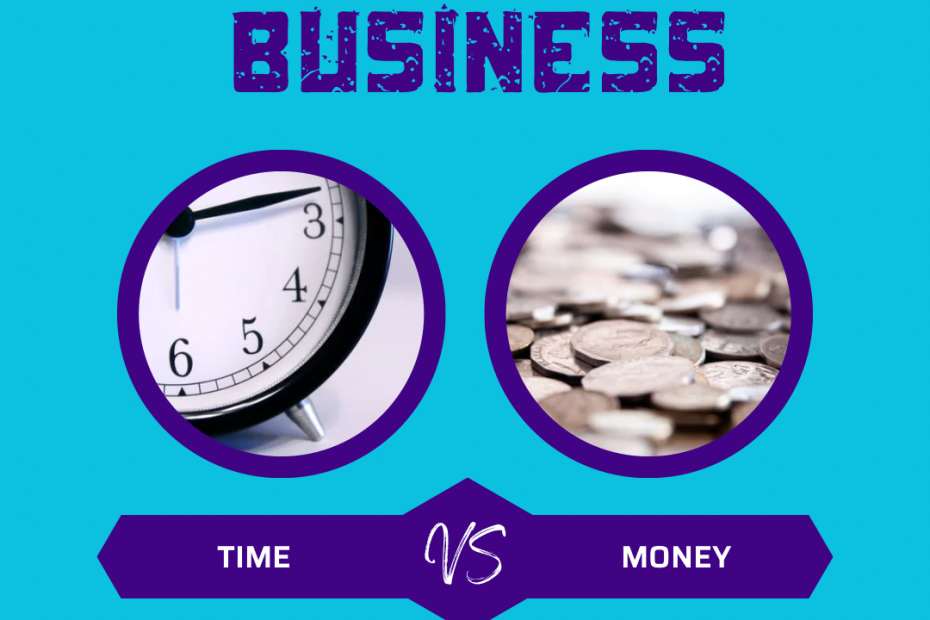Time versus Money.
When you are a new small business owner, the mix of excitement and worry becomes inevitable. The initial stages of entrepreneurship are often filled with enthusiasm, but the fear of wasting precious resources, both time and money, constantly lingers in the background. Time, being a finite resource, holds immense value for a small business owner. Every moment spent inefficiently can result in missed opportunities and delayed progress. As a result, careful time management becomes crucial. Prioritising tasks, setting realistic goals, and establishing a well-structured schedule can help maximise productivity and minimise wastage. Similarly, financial concerns weigh heavily on the minds of small business owners. Every dollar spent must be accounted for and justified. Implementing a budgeting strategy, closely monitoring expenses, and regularly reviewing financial records can help minimise unnecessary expenditure and identify areas for potential cost-cutting. However, it is imperative to strike a balance between cautiousness and taking calculated risks. While the fear of wasting time and money is valid, it should not hinder innovation or hinder the exploration of new opportunities. Embracing a mindset that allows for calculated risks can lead to growth and development.

What’s worse for small business owners: wasting time or wasting money?
As a small business owner, you’re always juggling multiple tasks and priorities. It’s easy to feel like you’re constantly running out of time and money. But which one is worse to waste?
The short answer: It depends on your specific circumstances. But in general, wasting time is often worse for small businesses than wasting money.
Here’s why:
- Time is a finite resource. Once you’ve wasted time, you can never get it back. But money, on the other hand, can be replaced.
- Time is essential for growth. In order to grow your business, you need to be able to invest your time in important tasks like marketing sales, and product development/customer service. If you’re wasting time on less important things, you’re stunting your growth.
- Time is a valuable asset. Your time is worth money. So when you waste time, you’re essentially wasting money.
Of course, wasting money is also bad for small businesses. Every dollar you waste is money that you could be using to invest in your business or grow your profits.
But if you have to choose one, (try not to, instead manage risks) wasting time is often the worse option.
Here are some tips to avoid wasting time in your small business:
- Set priorities and goals for each day. This will help you focus on the most important tasks and avoid getting sidetracked.
- Delegate tasks to others or outsource whenever possible. This will free up your time so you can focus on the most important things.
- Use time tracking tools to see where your time is going. This can help you identify areas where you can be more efficient.
- Take breaks throughout the day. This will help you stay focused and productive when you are working.
Here are some tips to avoid wasting money in your small business:
- Create a budget and track your expenses. This will help you identify areas where you can cut costs.
- Shop around for the best deals on goods and services. Don’t just go with the first vendor you find.
- Be careful about impulse purchases. Before you buy something, ask yourself if you really need it and if it’s a good value for your money.
- Invest in your business. This could include things like marketing, sales, and product development/customer service. Investing in your business will help you grow your profits and make more money in the long run.
Ultimately, the best way to avoid wasting time and money in your small business is to be mindful of your resources and make wise choices. Use your time and money to invest in the things that will help you grow your business and achieve your goals. Of course the things you invest your time or money may not help your business -everything is a risk.

Investing time and money into various aspects of your business, such as marketing, employee training, and research and development, can ultimately contribute to its growth and success.
One crucial area to invest in is marketing. Allocating resources to create effective marketing campaigns can help increase brand awareness, attract new customers, and ultimately drive sales. Whether it’s through traditional advertising channels, social media, or content marketing, a well-executed marketing strategy can yield substantial returns for your business. Investing in employee training is another crucial aspect.
By providing your staff (if you have any) with opportunities for professional development and continuous learning, you are equipping them with the skills and knowledge needed to perform their jobs more effectively. This investment can lead to increased productivity, improved customer service, and a more motivated and engaged workforce.
Also allocating resources to research and development can have a transformative impact on your business. Investing in innovation and staying ahead of industry trends can help you develop new products or services, improve existing ones, and remain competitive in a rapidly evolving market. This investment in research and development can lead to increased market share, enhanced customer satisfaction, and higher profit margins.
So, while it may not always be immediately apparent, investing time and money in various aspects of your business can play a crucial role in its long-term success. By focusing on marketing, employee training, and research and development, you can ensure that your business is well-positioned to thrive and adapt to changing conditions.
If you are a small or solo business owner struggling to know where to start with marketing but have a small budget and still want to do it yourself we have created this especially for you

Pingback: The Hidden Price Tag of A.I. for the One-Person Business - rawmarrowblog
Comments are closed.